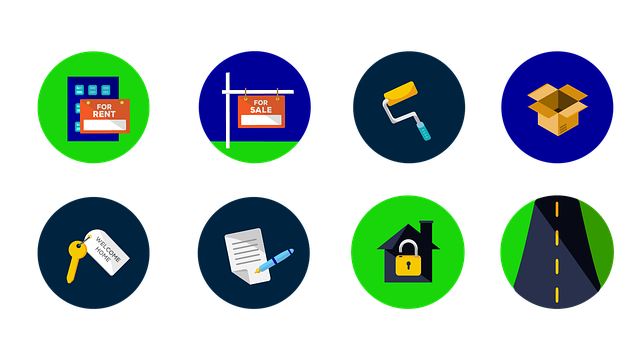AI tools for e-commerce are transforming the digital retail landscape by offering personalized shopping experiences, optimizing inventory management, improving search functionalities, and enhancing customer service through chatbots. These capabilities drive sales by increasing customer engagement and retention. Key benefits include predictive analytics, smart inventory systems, improved logistics processes, and 24/7 customer support via AI-powered chatbots and virtual assistants. By leveraging these tools, e-commerce businesses gain a competitive edge in the crowded online market while enhancing operational efficiency and customer satisfaction.
“Unleashing the transformative power of AI in e-commerce is revolutionizing how businesses operate and connect with customers. This article explores the strategic integration of AI tools, focusing on personalization, inventory management, customer support, and data analytics. Discover how AI enhances user experiences, optimizes operations, and enables data-driven decision-making in today’s competitive online market. By leveraging these AI solutions, e-commerce businesses can stay ahead, offering tailored interactions and efficient services.”
- Understanding AI Integration in E-commerce
- Personalization: Enhancing Customer Experience with AI Tools
- Smart Inventory Management and Supply Chain Optimization
- Chatbots and Virtual Assistants: 24/7 Customer Support
- Predictive Analytics for Data-Driven E-commerce Decisions
Understanding AI Integration in E-commerce

Integrating Artificial Intelligence (AI) into e-commerce is transforming the digital retail landscape, offering businesses a competitive edge in an increasingly crowded online market. AI tools for ecommerce provide personalized and intelligent shopping experiences that cater to individual customer preferences. These tools leverage machine learning algorithms to analyze vast amounts of consumer data, enabling retailers to gain deep insights into buyer behavior, product trends, and market dynamics.
By employing AI-driven solutions, e-commerce platforms can optimize inventory management, improve search functionalities, enhance customer service through chatbots, and predict customer purchases with remarkable accuracy. This level of personalization not only improves the overall shopping experience but also drives sales by increasing customer engagement and retention. As AI continues to evolve, its role in shaping the future of e-commerce is poised to become even more significant.
Personalization: Enhancing Customer Experience with AI Tools

Personalization has become a key differentiator in the competitive world of e-commerce, and AI tools are revolutionizing how businesses connect with their customers. By leveraging machine learning algorithms, retailers can analyze vast amounts of customer data to deliver highly tailored shopping experiences. From product recommendations based on browsing history to personalized marketing campaigns, these AI solutions enable stores to anticipate consumer needs and preferences.
This level of customization goes beyond simple suggestions. AI-driven chatbots and virtual assistants can engage in human-like conversations, offering real-time support and guidance while enhancing customer satisfaction. Additionally, natural language processing (NLP) allows for the creation of smart search functions, ensuring that users find relevant products more efficiently. As a result, businesses using AI tools for e-commerce gain a competitive edge by fostering stronger relationships with their target audience.
Smart Inventory Management and Supply Chain Optimization

E-commerce businesses face constant challenges in managing inventory and optimizing their supply chains, but AI tools for e-commerce offer innovative solutions to streamline operations. These smart inventory management systems leverage machine learning algorithms to predict demand, automate stock replenishment, and optimize storage. By analyzing historical sales data, seasonal trends, and even external factors like market fluctuations, AI can ensure that products are available when customers need them, reducing stockouts and overstocking.
Furthermore, AI enhances supply chain optimization by automating logistics processes, improving route planning, and facilitating real-time tracking. Intelligent algorithms can identify the most efficient shipping routes, predict delivery times, and even anticipate potential delays or disruptions. This level of precision enables e-commerce businesses to deliver products faster and more cost-effectively, enhancing customer satisfaction and fostering loyalty.
Chatbots and Virtual Assistants: 24/7 Customer Support

In today’s fast-paced digital landscape, providing 24/7 customer support is essential for any thriving e-commerce business. AI tools for ecommerce have emerged as a game-changer in this regard, introducing innovative solutions like chatbots and virtual assistants. These intelligent agents can handle a multitude of customer inquiries, from simple product questions to complex returns or exchanges, ensuring that every interaction receives prompt attention.
By leveraging natural language processing (NLP), these AI chatbots and virtual assistants understand and respond to customer needs with remarkable accuracy. This not only enhances the overall shopping experience but also allows human customer service representatives to focus on more intricate issues, increasing efficiency and reducing response times. As a result, customers benefit from instant support, while businesses reap the advantages of cost savings and improved operational scalability.
Predictive Analytics for Data-Driven E-commerce Decisions

Predictive analytics, powered by AI tools for e-commerce, is transforming how businesses make data-driven decisions. By analyzing historical sales data, customer behavior patterns, and market trends, these advanced algorithms can forecast future demand with remarkable accuracy. This capability is a game-changer for inventory management; retailers can optimize stock levels, reducing overstocking and minimizing the risk of stockouts, leading to enhanced operational efficiency and improved customer satisfaction.
Moreover, predictive analytics extends its benefits beyond inventory control. It enables personalized recommendations, targeted marketing campaigns, and dynamic pricing strategies. E-commerce platforms can leverage AI tools to understand customer preferences, offering tailored product suggestions that increase conversion rates. This level of customization fosters a sense of individual attention, strengthening the customer relationship and driving business growth in today’s competitive online market.
AI tools for e-commerce have transformed the way businesses operate, offering personalized experiences, streamlined inventory management, and enhanced customer support. By leveraging AI, retailers can make data-driven decisions, predict trends, and improve overall efficiency. These advancements not only benefit the bottom line but also foster stronger customer relationships, setting the stage for continued growth in the competitive e-commerce landscape.
